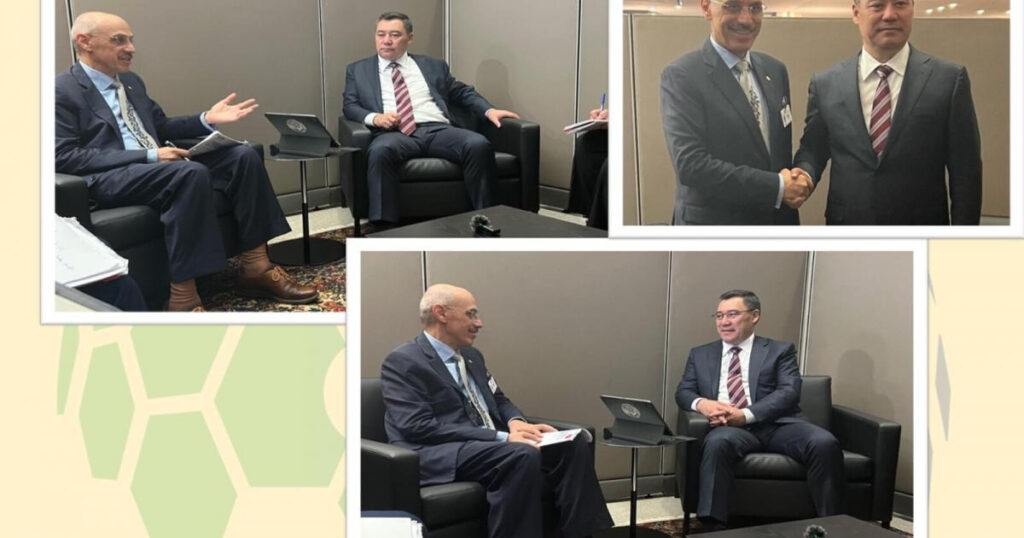Kyrgyzstan is set to witness significant economic and social infrastructure developments as the Islamic Development Bank prepares a Member Country Partnership Study for the Central Asian nation.
The MCPS will facilitate the design of tangible programs and projects for the Kyrgyz Republic, aligning it with IsDB’s new strategic direction, as reported by the Saudi Press Agency.
This announcement was made during a meeting between IsDB President Mohammad Al-Jasser and Kyrgyz President Sadyr Japarov on the sidelines of the 78th session of the UN General Assembly in New York.
Kyrgyzstan enjoys a long-standing relationship with the Shariah-compliant bank, which works to accelerate economic development and enhance cooperation among its members.
In a statement, the IsDB president said cooperation between the organization and Kyrgyzstan could grow significantly following the last Arab Cooperation Group roundtable meeting, which identified a pipeline of priority projects with a total amount of $1.9 billion.
“Kyrgyzstan’s support for the institution in international meetings, such as the recent GCC-Central Asia Summit in Jeddah, has been exceptional, while the IsDB Group has also been providing significant funding to the country,” Al-Jasser said.
Furthermore, the IsDB chief and Ajay Banga, president of the World Bank, held a strategic partnership meeting with the aim to strengthen their entities’ current collaboration and explore new initiatives to implement development projects in the member countries and vulnerable communities globally.
Al-Jasser explained to Banga that his organization’s current strategic objectives revolve around boosting recovery, tackling poverty, building resilience, and driving green economic growth.
He said he was worried about the negative impact of successive external shocks on the global economy, adding that the ongoing geopolitical and trade tensions continue to cause global food and energy volatility.
According to IsDB, its president proposed a robust pact between the two institutions that will include a co-financing target and track progress in the new IsDB-WB memorandum of understanding that will provide an opportunity to give the partnership a new impetus to address critical matters such as climate change.
“While the case for climate action is no longer debatable, there has been limited progress on climate finance, especially for low-income countries to manage the impact of low-carbon transition. MDBs (multilateral development banks) will require greater concessional financing pools to ensure a fair and just low-carbon transition,” Al-Jasser said.
Source : ARABNEWS


